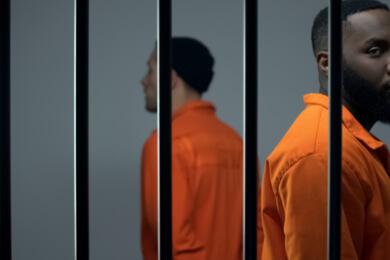Texas Bail Reform Bill May Make it Harder for Some to Get Out of Jail
 In Texas, most people who are arrested and charged with a crime have the right to be released on bail. However, people sometimes struggle to pay the amount of bail set by a judge, and if they cannot pay, they may be forced to remain in jail while their criminal case is pending. A new bill that is currently being considered by Texas lawmakers may create additional difficulties for those who have been arrested, and criminal justice advocates believe that if this law is passed, it would disproportionately affect people of color.
In Texas, most people who are arrested and charged with a crime have the right to be released on bail. However, people sometimes struggle to pay the amount of bail set by a judge, and if they cannot pay, they may be forced to remain in jail while their criminal case is pending. A new bill that is currently being considered by Texas lawmakers may create additional difficulties for those who have been arrested, and criminal justice advocates believe that if this law is passed, it would disproportionately affect people of color.
Details of the Bail Reform Bill
Currently, Texas judges have discretion in most cases regarding whether to set cash bail or to release a defendant on a personal bond without the requirement to pay bail. The new law would prohibit personal bonds in cases where a person is charged with a violent crime or when a person is arrested and charged with a felony after being released on bail or community supervision for a violent crime charge. Applicable violent crimes include murder, aggravated assault, kidnapping, aggravated robbery, sexual assault, injury to a child, domestic assault, or continuous violence against the family.
The law would also require judges to receive training for duties related to setting bail, and it would create a public safety report system that would provide information about a defendant to determine whether they are eligible for a personal bond or whether cash bail should be set. This system would include information about a person’s previous criminal history, including misdemeanor or felony convictions, previous jail sentences, and any previous failures to appear in court as required after being released on bail. When setting bail, judges would be required to consider whether the person is charged with a violent crime, their criminal history, and their citizenship status.
The law also includes some provisions meant to ensure that the conditions of bail will not be too restrictive. The bill states that a judge should impose the least restrictive conditions necessary to ensure that a person will appear in court while required while also protecting the safety of the community and any alleged victims of a criminal offense. A judge may also consider an affidavit submitted by a defendant stating that they have limited financial resources to pay bail, as long as this affidavit is accompanied by a form that details the defendant’s income, assets, and financial resources. The law would also place restrictions on the ability of non-religious charitable bail organizations to pay bail on behalf of defendants.
Contact Our Denton County Bail Agents
If this new law passes, some defendants may be required to pay higher amounts of bail before they can be released. At Doc’s Bail Bonds, we work to ensure that people can pay bail as required and get out of jail as quickly as possible. We provide our clients with affordable options, ensuring that they will be able to put down the amount required by a judge. To learn how we can help you or your loved one get out of jail, contact a Dallas bail bondsman at 214-747-4110.
Sources:
https://www.texastribune.org/2021/07/10/texas-bail-bills-legislature/
https://capitol.texas.gov/tlodocs/871/billtext/html/SB00006E.htm










